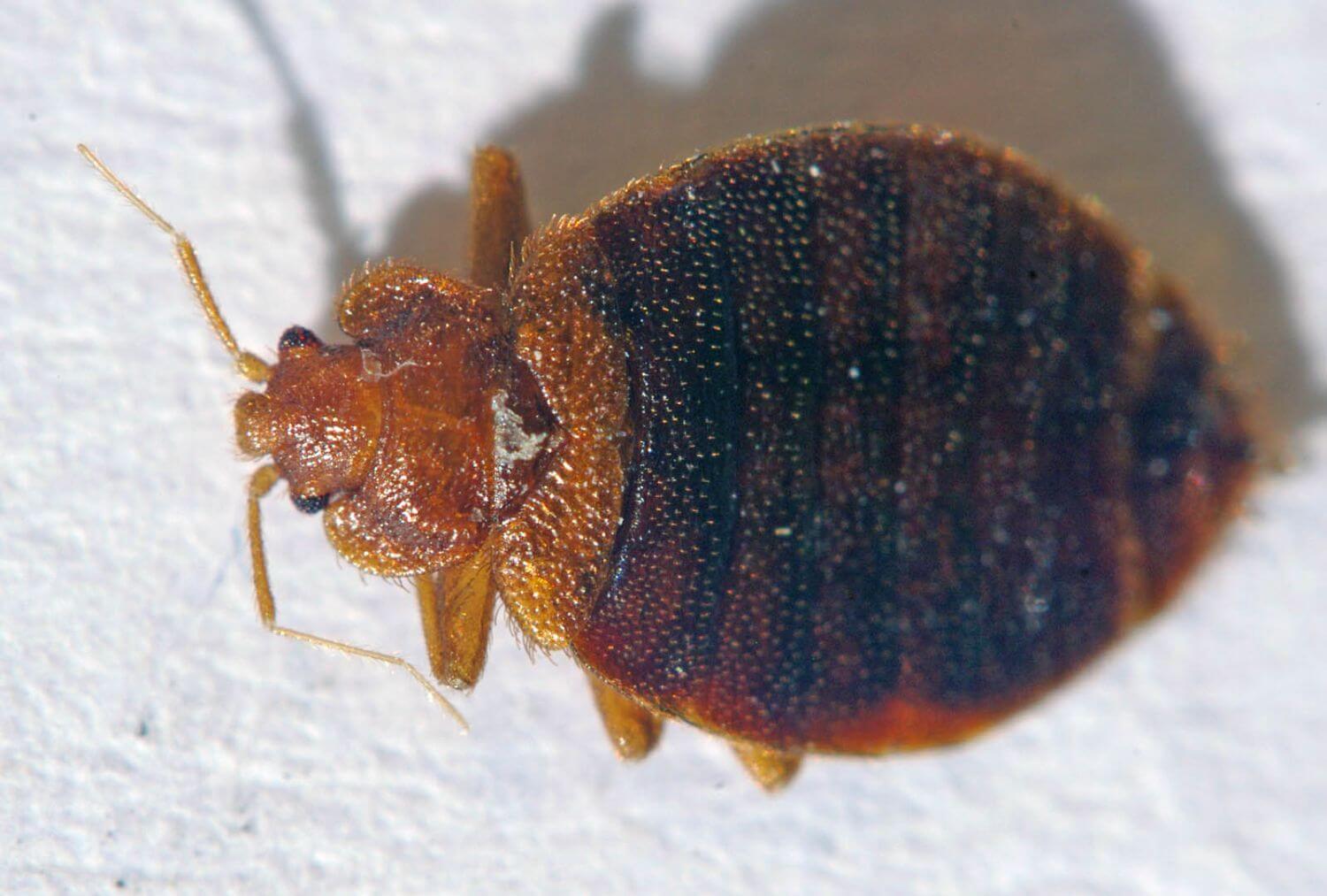Nobody wants to deal with bed bugs. These tiny, blood-sucking pests can turn your peaceful home into a nightmare. But here’s the good news: if you’re a renter, you have legal rights that can help you get rid of these unwanted guests.
Most states require landlords to provide habitable housing, and most courts don’t consider bed bug infested units to be habitable. This means your landlord usually has to fix the problem, not you.
About 89% of pest control companies get most of their bed bug calls from apartments and condos. That’s a lot of renters dealing with this problem. The key is knowing your rights and acting fast.
This guide will walk you through important rights you have as a tenant when bed bugs invade your space. From understanding who pays for treatment to knowing when you can break your lease, we’ll cover everything you need to know to protect yourself.
1. Know Your Right to Habitable Housing
Every renter has the right to live in a safe, clean place. This is called the “implied warranty of habitability,” and it’s the law in almost every state.
When bed bugs move into your apartment, they make it unlivable. Most courts don’t consider bed bug infested units to be habitable. This means your landlord is breaking the law if they don’t fix the problem.
- Kill bed bugs and bed bug eggs
- Use spray as a spot treatment around bed frames, mattress seams/tufts/folds, and baseboards
- Kills even the toughest bed bugs
- The continuous spray Comfort Wand easily gets into hard-to-reach areas
Here’s what makes a place unlivable:
- You can’t sleep without getting bitten
- The bugs are spreading to your furniture and clothes
- You’re getting sick from the bites or stress
- You can’t use parts of your home normally
The exact rules change from state to state, but the basic idea is the same everywhere. Your landlord must give you a place that’s safe to live in. Bed bugs make that impossible.
If your landlord tries to say the bed bugs aren’t their problem, remind them about habitability laws. You’re not asking for a favor. You’re asking them to follow the law.
2. Understand Who Pays for Treatment Costs
The big question everyone asks is: who has to pay to get rid of the bed bugs? In most cases, it’s your landlord.
As long as the tenant didn’t introduce the bed bugs, the landlord is usually responsible for extermination. But proving who brought them in can be tricky.
When landlords usually pay:
- You live in an apartment building with other tenants
- The bugs were already there when you moved in
- You can’t prove how they got there
- Multiple units have the same problem
When tenants might pay:
- You brought in infested furniture
- You didn’t report the problem right away
- You live in a single-family house and have been there a long time
- You caused the infestation through your actions
In multi-unit buildings, landlords or their insurers often end up footing the extermination bill and possibly tenant relocation costs. This is because it’s nearly impossible to figure out exactly how the bugs got there.
Don’t let your landlord automatically blame you. They need proof that you caused the problem. If they can’t prove it, they have to pay for the treatment.
3. Document Everything from Day One
The moment you see signs of bed bugs, start taking pictures and keeping records. Photos and videos are the best proof you can provide to your landlord and your lawyer if the need arises.
What to document:
- Photos of the bugs themselves
- Pictures of bite marks on your skin
- Images of blood spots on sheets
- Videos of bugs moving around
- Photos of bug shells or dark spots on furniture
Keep written records of:
- When you first noticed the problem
- Every conversation with your landlord
- All emails and text messages
- Any symptoms you’re having
- Money you spend on treatment or replacement items
Written, dated communication with your landlord is essential to protect your rights. Even if you talk on the phone, follow up with an email that summarizes what you discussed.
Save everything in a folder, both physical and digital. If you end up in court, these records will be your best friend. Good documentation can be the difference between winning and losing your case.
4. Report the Infestation Immediately in Writing
Most states require you to tell your landlord about bed bugs within 24 to 48 hours of finding them. State laws might require tenants to report a possible infestation within a certain time, usually 24-48 hours after discovering it.
Don’t just call or text. Write a formal letter or email. If you discover bed bugs, write a signed and dated letter to your landlord about the problem. Here’s what to include:
Your notification should have:
- The date you’re writing
- Your name and address
- Clear description of what you found
- When you first noticed the problem
- Request for immediate action
- Your contact information
Send it by certified mail, return receipt requested so you can later prove that your landlord received it. This creates a paper trail that proves you reported the problem on time.
If your lease says you can report problems by email, that’s fine too. A tenant who gives notice electronically shall send it only to the email address, telephone number, or electronic portal specified by the landlord in the rental agreement.
The key is making sure you can prove your landlord got your message. Save the certified mail receipt or email confirmation.
5. Demand Professional Inspection and Treatment
Don’t try to handle bed bugs yourself. When it comes to bed bugs, you really shouldn’t try to exterminate them on your own. Bed bugs are extremely difficult to eradicate.
Your landlord needs to hire a real pest control company. Your landlord should hire a qualified exterminator to inspect for and measure the concentration of bed bugs in your rental and also adjoining units.
What professional treatment includes:
- Thorough inspection of your unit and neighboring apartments
- Identification of all infested areas
- Treatment plan using heat or approved chemicals
- Follow-up visits to make sure the bugs are gone
- Written report of what was found and done
A professional will also attempt to determine where the bed bugs came from, and learn whether and how the problem has spread. This information helps figure out who should pay for treatment.
- Kill bed bugs and bed bug eggs
- Use spray as a spot treatment around bed frames, mattress seams/tufts/folds, and baseboards
- Kills even the toughest bed bugs
- The continuous spray Comfort Wand easily gets into hard-to-reach areas
Heat treatment is usually the most effective option. It involves heating your entire apartment to at least 118°F for 90 minutes. This kills the bed bugs by overheating their bodies until they die, and the same happens to the eggs.
Chemical treatments are cheaper but less effective. They usually take multiple treatments because chemicals only cover surfaces and don’t get into every crack, and bed bugs are becoming more resistant to chemicals.
6. Know Your State’s Specific Bed Bug Laws
There are 21 states that have some level of law or regulation that applies to bed bugs. These laws spell out exactly what landlords and tenants must do.
New York has some of the strongest laws:
- Landlords must provide a Bedbug Disclosure Notice to prospective tenants before signing a lease
- Bed bug infestations are classified as a Class B hazardous violation under the New York City Housing Maintenance Code, requiring landlords to act within 30 days of notice
- Property owners are required to address bed bug infestations promptly
California requires disclosure too:
- Landlords are legally required to inform renters who are applying or signing new leases about any past bed bug infestations that have occurred within the last 12 months
- Landlords are also required to shoulder the temporary relocation costs, as well as the cost of items that were destroyed because of the pest infestation
Colorado has specific timelines:
- Not more than 96 hours after receiving notice of the presence or possible presence of bed bugs, a landlord shall inspect or obtain an inspection by a qualified inspector
- Upon request from a prospective tenant, a landlord shall disclose whether, to the landlord’s knowledge, the dwelling unit contained bed bugs within the previous 8 months
Texas gives you court options:
- Your landlord usually has around seven days from receiving your written notice to deal with the infestation. If the landlord fails to act, you can sue in justice court
Even if your state doesn’t have specific bed bug laws, general habitability rules still apply. Check with your local housing authority or tenant rights group to learn your area’s specific rules.
7. Understand Disclosure Requirements
Many states require landlords to tell you about past bed bug problems before you sign a lease. This helps you make an informed decision about where to live.
Some states and cities have bed bug specific laws requiring landlords to disclose a property’s history of bed bugs if a prospective tenant asks; others require disclosure even if no one asks.
What landlords might have to tell you:
- Any bed bug problems in the past year
- When the unit was last inspected for bed bugs
- What treatment was done
- Whether neighboring units had problems
Nearly all the laws prevent a landlord from renting or advertising a unit with a known current infestation. So if your landlord knows there are bed bugs right now, they can’t legally rent to you.
If your landlord lies or doesn’t disclose: If your landlord doesn’t make the bed bug disclosures required by local law, or lied when you asked about the property’s history, you might have several options, including breaking the lease and leaving without responsibility for future rent.
Always ask directly about bed bug history when looking at apartments. Even if the law doesn’t require disclosure, honest landlords should tell you the truth. When a landlord misrepresents the property’s history, the tenant might have grounds for a lawsuit or other remedies such as breaking the lease without penalty.
8. Pursue Legal Remedies When Landlords Don’t Act
If your landlord ignores the bed bug problem, you have legal options. Depending on your state’s law, if your landlord fails to take care of a major bed bug problem, you might have options.
Rent withholding means you stop paying rent until the problem is fixed. Check your state rules on rent withholding for the specific conditions under which you may use these options. Some states don’t allow this, so check your local laws first.
Repair and deduct lets you hire your own exterminator and subtract the cost from your rent. Repair the problem on their own and deduct the cost from rent. But there are usually limits on how much you can deduct.
Breaking your lease might be allowed if the apartment becomes unlivable. Some bed bug laws specify that tenants may break their lease when a landlord fails to make the disclosures the law requires.
Suing for damages can help you get money back for:
- Out of pocket extermination costs
- Replacement furniture and clothing
- Temporary housing expenses
- Medical bills from bites
Court orders can force your landlord to hire an exterminator. You can sue in justice court for a court order forcing your landlord to hire a licensed exterminator, pay you back for expenses, and offset or refund your rent.
Before you take any of these steps to deal with an unresponsive landlord, you should consider consulting with an attorney or local housing resource to see what options local law allows. Taking the wrong action could get you in trouble.
9. Work with Health Departments and Code Enforcement
Government agencies can put pressure on landlords who won’t act. If you haven’t heard back, call the local board of health, code inspector, or a private pest control company to inspect the apartment.
How to file a complaint:
- Call your local health department
- File online complaints where available
- You can file a bedbug complaint online or by calling 311 (in NYC)
- Request an official inspection
What happens next:
- If the HPD inspector finds bedbugs, the property owner is issued an HPD Notice of Violation (NOV) ordering that the condition be addressed
- The landlord has 30 days to correct this problem
- Fines and penalties can be issued
- The city might do the work and bill your landlord
If the property owner does not address the condition, file a complaint online or call 311. Don’t wait for your landlord to do the right thing.
Government inspectors carry more weight than tenant complaints. Landlords who ignore tenants often pay attention when the city gets involved.
10. Know Your Rights to Temporary Housing and Relocation
- Kill bed bugs and bed bug eggs
- Use spray as a spot treatment around bed frames, mattress seams/tufts/folds, and baseboards
- Kills even the toughest bed bugs
- The continuous spray Comfort Wand easily gets into hard-to-reach areas
Sometimes bed bug treatment means you have to leave your apartment temporarily. In many cases, your landlord has to pay for your temporary housing.
Aside from the extermination costs, landlords are also required to shoulder the temporary relocation costs, as well as the cost of items that were destroyed because of the pest infestation (in California).
When landlords might pay for hotels:
- The apartment becomes completely unlivable
- Treatment requires you to leave for several days
- Your health is at risk from staying
What costs might be covered:
- Hotel room rates
- Restaurant meals if you don’t have a kitchen
- Parking fees
- Moving and storage costs
- Pet boarding
- Lost wages from moving
The government can require the landlord to pay for temporary relocation assistance to the tenants, including the higher rent at the temporary location, moving and packing all personal property, costs of moving machinery or equipment.
Getting an agreement in writing: If you can come to an agreement, BE SURE IT IS IN WRITING, SIGNED BY THE LANDLORD. It should specify when you need to be out, when you can come back, and provide expressly for payment up front.
Not all states require landlords to pay for temporary housing. Check your local laws and lease agreement. If your landlord won’t pay, you might need to use your own money and try to get reimbursed later through court.
11. Protect Yourself from Retaliation
It is illegal for a landlord to retaliate against a tenant for complaining about a condition on the property that affects the health or safety of its occupants.
What counts as retaliation:
- Trying to evict you after you complain
- Raising your rent suddenly
- Refusing to make other repairs
- Harassing you or your family
- Cutting off utilities
If the landlord takes action against you (for example, terminating your lease) within six months of your written complaint, the landlord is presumed to have improperly retaliated against you.
How to protect yourself:
- Keep paying rent on time
- Follow all lease terms
- Document any changes in how your landlord treats you
- Save all communications
- Report retaliation to housing authorities
Just because you complained about bed bugs doesn’t mean you can stop following your lease. Keep being a good tenant while you fight for your rights.
If your landlord does retaliate, you can sue them for damages. Courts take retaliation seriously because it stops tenants from reporting real problems.
12. Get Professional Legal Help When Needed
Some bed bug cases are too complex to handle alone. Whitney, LLP’s lawyers represent tenants with bed bug infestations in their apartments against negligent landlords. We have recovered over $13 million for our clients in bed bug infestation cases.
When to call a lawyer:
- Your landlord completely ignores the problem
- You’re facing eviction after complaining
- The infestation affects multiple units
- You have significant medical bills or property damage
- Your landlord is retaliating against you
What lawyers can do:
- File lawsuits against landlords
- Negotiate settlements
- Get court orders for treatment
- Recover damages for your losses
- Handle complex legal procedures
Finding help:
- Contact local legal aid organizations
- Look for tenant rights lawyers
- Check with your state bar association
- Ask for referrals from housing groups
Many tenant lawyers work on contingency, meaning they only get paid if you win. Initial consultations are often free, so you can find out if you have a strong case without paying upfront.
Don’t try to handle complicated legal issues by yourself. Professional help can make the difference between getting the treatment you need and continuing to live with bed bugs.
Take Action to Protect Your Rights
Dealing with bed bugs is stressful, but you’re not powerless. As a tenant, you have real legal rights that can force your landlord to fix the problem.
The most important things to remember:
- Document everything from day one
- Report the problem immediately in writing
- Know your state’s specific laws
- Don’t try to handle treatment yourself
- Work with government agencies when needed
- Get legal help for complex cases
Most states require landlords to provide habitable housing, and most courts don’t consider bed bug infested units to be habitable. This means the law is on your side.
Act fast when you spot bed bugs. The longer you wait, the worse the problem gets and the harder it becomes to prove your landlord is at fault. With the right approach and knowledge of your rights, you can get rid of these pests and get back to peaceful sleep in your home.
Remember, you deserve to live in a safe, clean apartment. Don’t let bed bugs or unresponsive landlords take that away from you.













